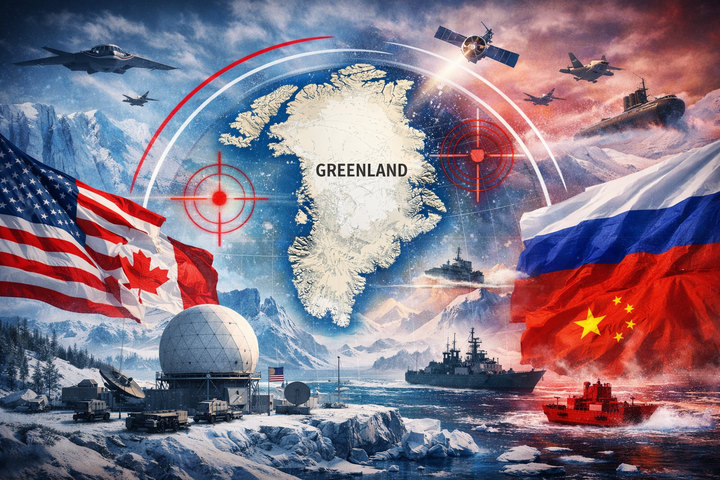What The Last of Us Teaches Us About Survival
A masterclass on survival when the world falls apart.

HBO’s The Last of Us isn’t just a gripping post-apocalyptic drama. It’s a masterclass in what it means to survive when the world falls apart.

Adapted from the acclaimed video game, the show follows Joel, a hardened smuggler, and Ellie, a teenage girl with a mysterious immunity, as they navigate a ravaged America overrun by fungal-infected “clickers” and desperate humans.
Beyond the heart-pounding action and stellar performances, the series offers profound lessons about survival that resonate far beyond its fictional wasteland. Here’s what we can take away.
Thanks for reading ON SURVIVAL! Subscribe for free to receive new posts and support my work.
1. Survival Demands Adaptability
In The Last of Us, the world changes overnight—cities crumble, governments collapse, and a fungal infection turns people into monsters.

Joel and Ellie survive because they adapt to this brutal reality. Joel shifts from a blue-collar dad to a ruthless survivor, while Ellie learns to wield a gun and read situations fast.
Lesson: Rigidity kills. Whether it’s a societal collapse or a personal crisis, survival hinges on your ability to pivot.
Learn new skills, rethink old habits, and embrace discomfort.
The ones who thrive are the ones who evolve.
2. Trust Is a Double-Edged Sword
The show’s world is littered with betrayal—raiders, cults, and even the military prioritize their own survival over others.
Joel’s mantra, “You don’t trust anyone,” keeps him alive, but his bond with Ellie shows trust can also be a strength.
Their relationship becomes a lifeline, proving that connection matters as much as caution.
Lesson: In a crisis, vet people carefully but don’t close yourself off entirely.
Build alliances with those who’ve earned your trust through actions, not words. A lone wolf might survive, but a small, loyal pack endures.
Post sponsored by: ALLPOWERS, Portable Power Stations for camping, RV life, emergency and travel. Find solarpanels, generators and backup power solutions.
3. Resourcefulness Beats Resources
Joel and Ellie rarely have the luxury of stockpiles or safe havens. They scavenge, barter, and make do.
Whether it’s crafting shivs from scraps or using stealth to avoid clickers.
Meanwhile, well-armed groups like FEDRA often fall because they rely on control rather than ingenuity.
Lesson: Hoarding gear or wealth isn’t enough.
Train your mind to improvise. Learn basic skills. First aid, navigation, or even urban foraging.
In a pinch, creativity and grit outweigh a full pantry.
4. Hope Is Fuel, Not a Plan
Ellie’s immunity offers a glimmer of hope for a cure, driving their journey. But hope alone doesn’t keep them alive.
Planning, vigilance, and sacrifice do. Characters who cling blindly to optimism, like the ill-fated commune in Episode 6, often meet grim ends.
Lesson: Hope keeps you moving, but it’s not a strategy. Pair it with clear-eyed preparation.
Whether it’s a financial downturn or a natural disaster, map out your risks and resources. Dream of better days, but act for today.
5. Survival Tests Your Humanity
Joel’s brutal choices. Like his actions in the hospital finale. Spark debate about morality. Does survival justify everything?
Ellie’s struggle with guilt and purpose shows that staying alive isn’t the same as living well. The show’s best moments remind us that compassion, even in small doses, defines who we are.
Lesson: Crises reveal character. Decide now what lines you won’t cross, because desperation clouds judgment.
Survival matters, but so does holding onto your values—whether it’s helping a stranger or sparing an enemy.
6. Community Is Complicated but Essential
From Bill and Frank’s fortified love story to the Jackson settlement’s fragile peace, The Last of Us shows that no one survives alone forever.
But communities come with risks—infighting, dogma, or betrayal, like the Kansas City rebels’ downfall.
Lesson: Seek community, but choose wisely.
Look for groups with shared goals and mutual respect, not just proximity or power.
A strong network—friends, family, neighbors—can mean the difference between collapse and resilience.
Final Thoughts
The Last of Us isn’t a survival manual, but its raw portrayal of human nature under pressure holds up a mirror to our own instincts.
Survive by adapting, balancing trust with caution, and leaning on resourcefulness over resources.
Let hope guide you, but ground it in action. Above all, remember that survival isn’t just about staying alive—it’s about staying human.
What’s your take on survival?
Have you seen The Last of Us?
Drop a comment below and let’s unpack it together.
Thanks for reading On Survival. If you enjoyed this, share it with someone who’d vibe with it. Stay sharp out there.
Thanks for reading ON SURVIVAL! Subscribe for free to receive new posts and support my work.
Post sponsored by: ALLPOWERS, Portable Power Stations for camping, RV life, emergency and travel. Find solarpanels, generators and backup power solutions.









Comments ()